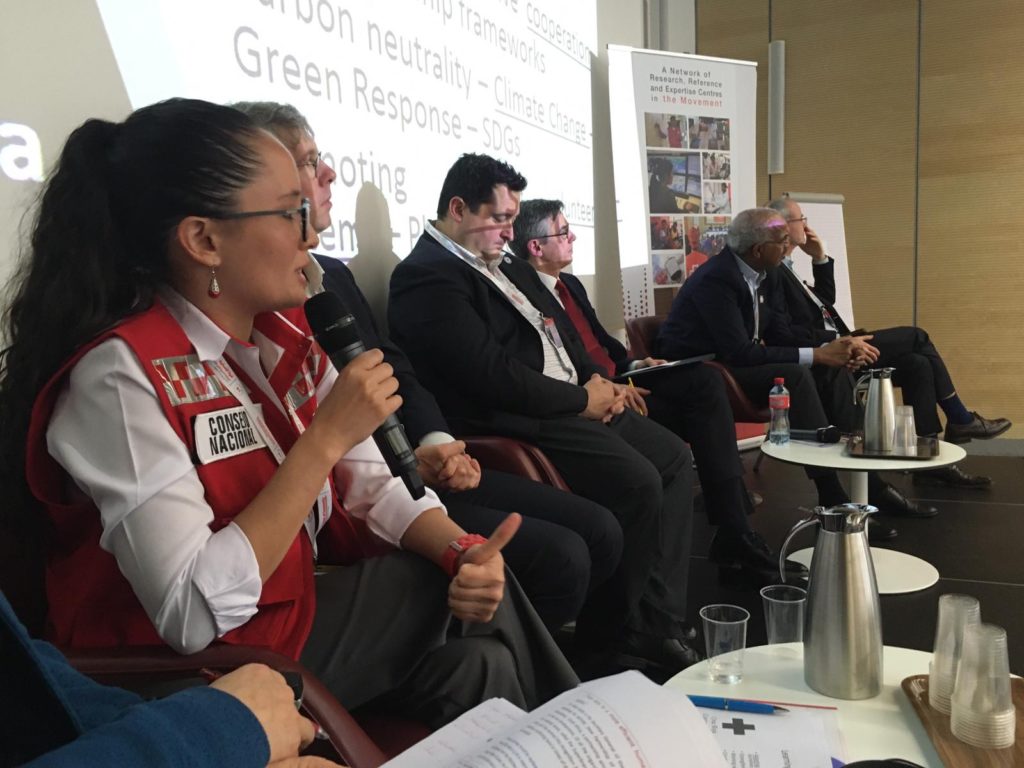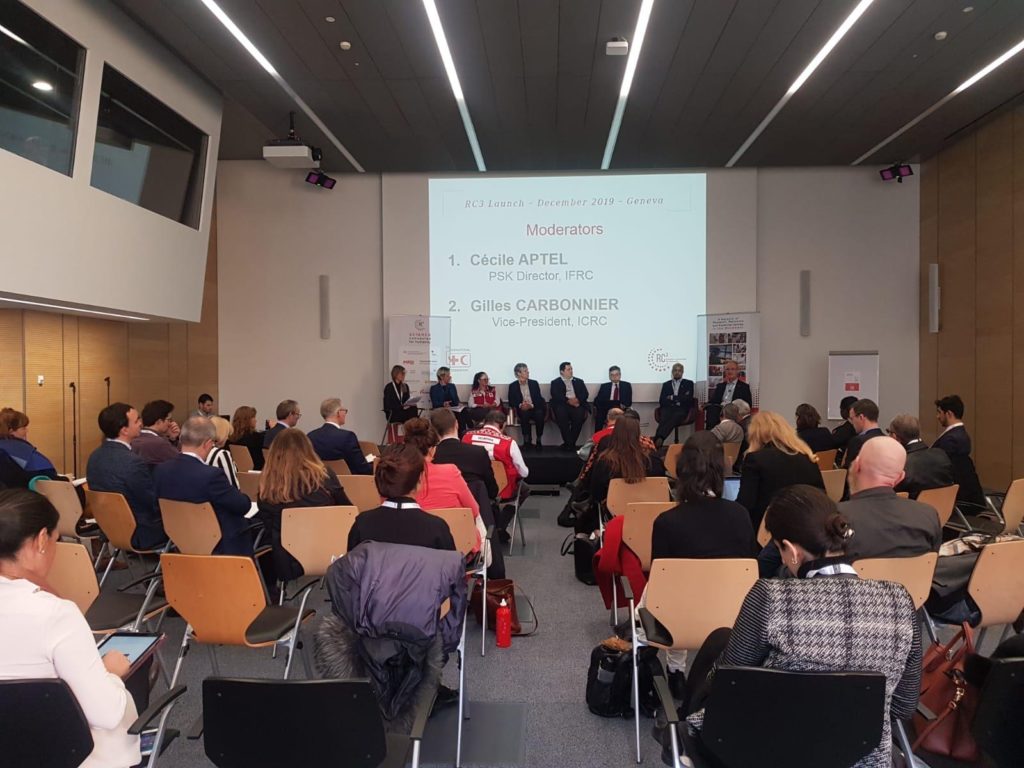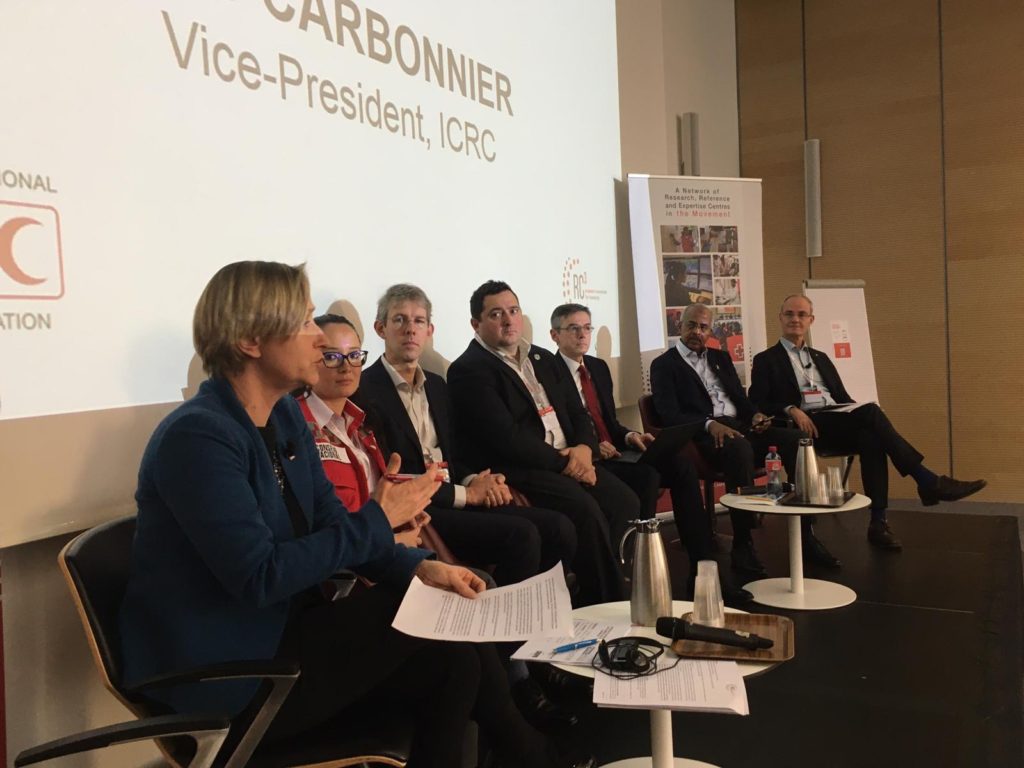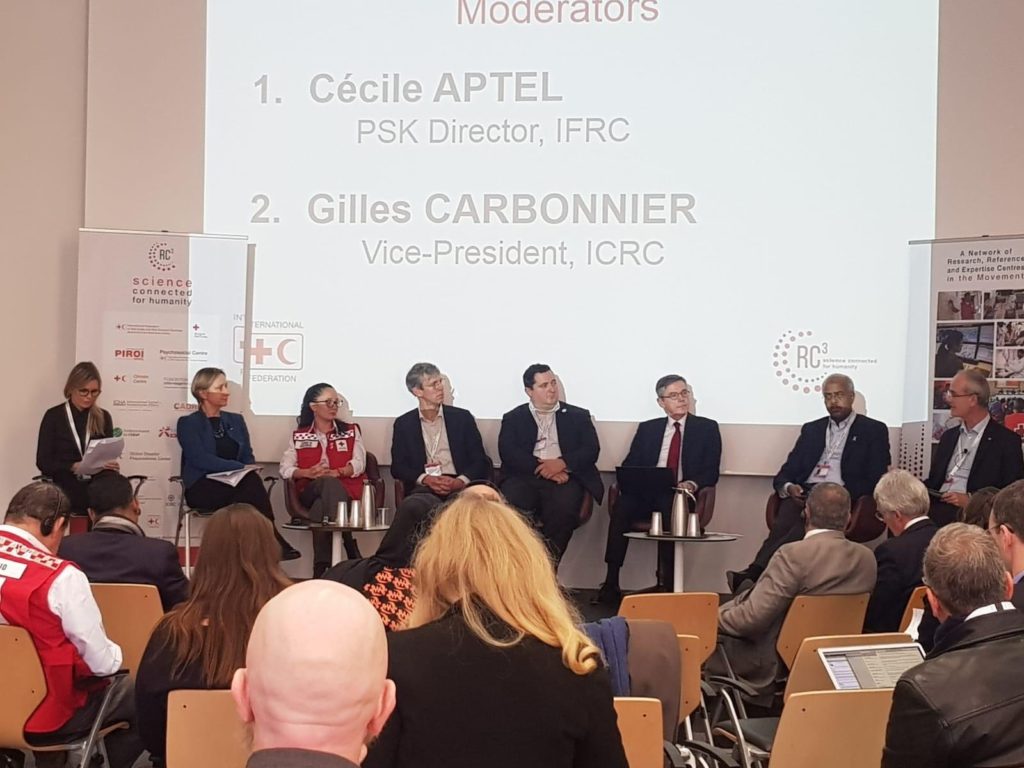From December 4 to 12, 2019, the most important bodies of the International Red Cross and Red Crescent Movement (the Movement) were held in Geneva: the General Assembly of the International Federation (IFRC), which takes place every two years, then the International Conference which brings together every four years since 1867 all the entities of the Movement and the signatory States of the Geneva Conventions. This unifying and symbolic moment of the Movement was chosen to officially launch the new and first Movement Research Consortium: the RC3 (Red Cross Red Crescent Research Consortium).
An international panel of choice for an official presentation
Moderated by Cécile Aptel, Director of Policies, Strategy and Knowledge at the IFRC, and Gilles Carbonnier, Vice-President of the International Committee of the Red Cross (ICRC), the launch side-event of the Consortium gathered, during a panel discussion, the Kenyan, Costa Rican and Belgian Red Crosses with the IFRC Climate Center, the French Red Cross Foundation for research and the Global Disaster Preparedness Center. A large public was there with stated expectations for a better connection of research and operations.
Bringing together research centers and talents from all continents
For the past year, the French Red Cross Foundation has actively participated in the construction of a common and collective research agenda, as part of the framework of the new ten-year strategy 2030, and in the continuity of an international workshop organized in Paris in February 2019. The observation was simple: the humanitarian sector never had the capacity to invest in research up to its programs and its responsibilities. However, many initiatives are developing in the Movement on specific themes, with a wide spectrum of methodologies and with cutting-edge expertise. The Consortium aims to bring together research centers and talents from all continents, with a view to making ambitions and results converge and better supporting the necessary changes in the sector and national societies.
A desire to bridge practices and science
After only a few months, 19 centers have succeeded in joining forces, their diversity making their strength, to better explain their missions at several international events (in Cannes, Nairobi or Paris), to take a common position on the 2030 scientific agenda, and learn to collaborate on the major challenges facing the Movement, in particular health, migration, climate change and natural disasters. The launch of RC3 in Geneva, on the occasion of this unique international meeting, marks a desire, as well as a necessity, for the Movement to bridge humanitarian practices and science and the academic sector.









